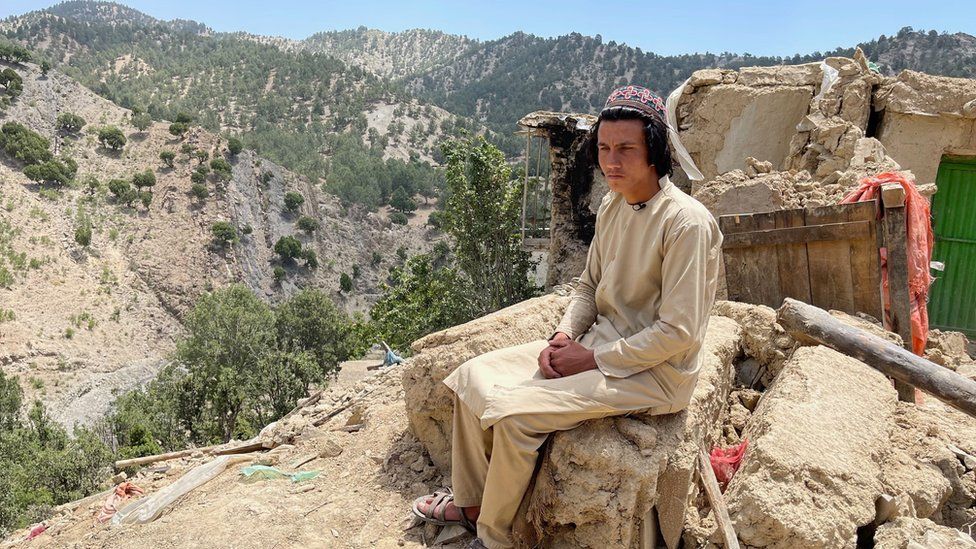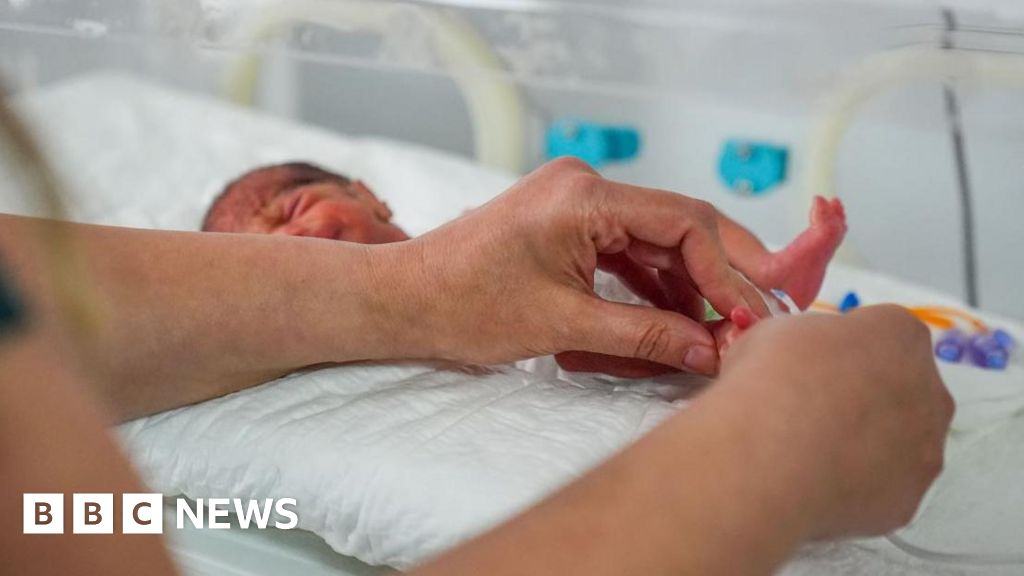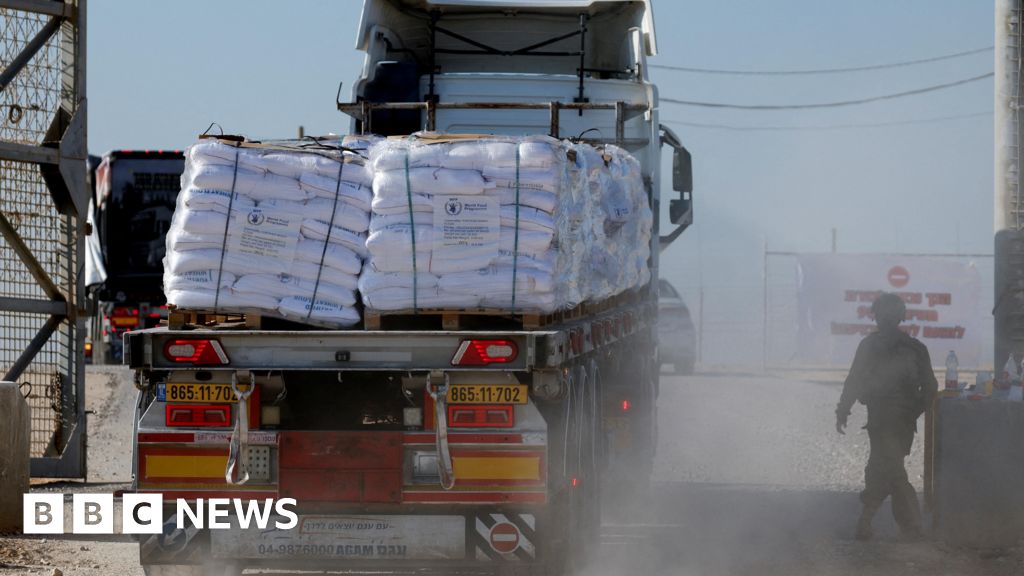ARTICLE AD BOX
By Yogita Limaye
BBC News, Paktika province, Afghanistan

Arafat Gyankhail's mother was killed as the quake collapsed their home
It's easy to miss the village of Dwegur if you're not looking for it. Its mud homes appear to merge with the mountainside they're scattered on.
In Afghanistan's south-eastern Paktika province, less than 20 miles from the border with Pakistan, it's also about 20 miles from the epicentre of the earthquake which struck the region last week.
A majority of its homes have been completely destroyed. And the structures still standing have deep cracks running through them, making them too dangerous to live in. It is home to 250 people, and because of its remote location no-one from the Taliban government or aid agencies have reached it with help so far. Before us, no journalists had been there either.
At the northern edge of the village, 20-year-old Arafat Gyankhail's house used to stand on a slope. Now it's a pile of rubble - stones, window frames and personal belongings lie amid the ruins.
"That night I heard a sound like a big explosion and something hit my head hard. I thought I was going to die. But I managed to crawl out from under the rubble," he said.
"I moved mud and stones aside and found my mother. When I touched her, I realised she was dead."
Trauma is visible on Arafat's face. His mother Zartara was 50 years old. He told us she had swapped the spots they were sleeping in the night the earthquake struck.
"I miss her so much," he said.
His brother's wife and two children were also killed, as was a 12-year-old boy from another family. Dozens of people from the village have been injured.
Four of Zapir Khan's grandsons are in hospital, one of them with a head injury. "Everything we worked for and built has gone. We need help," he said.
Villagers won't return to homes left standing for fear of another earthquake
No-one in the village has begun to clear the debris. Village elder Taj Ali Khan said it's because they are terrified there could be another earthquake.
"We've been feeling many aftershocks. Every day there are at least two. Last night at 11pm there was one, which woke us all up. That's why we're sleeping outside - no-one dares go into whatever's left of their homes," he said.
"There is so much hunger and sadness in my village. No-one has come to help us."
They have strung plastic sheets and pieces of cloth between bamboo sticks stuck into the ground. Women sleep in the makeshift tents. The men sleep outside. In these mountainous areas, thunderstorms are a frequent occurrence.
Aid has arrived about an hour away in Gayan - food and other relief material from humanitarian agencies, and some from the Taliban government. Even getting to that point from the nearest town requires travelling for hours on mud tracks that wind around mountains and cross river beds. For loaded trucks the journey is even slower.
Dwegur is a further uphill drive from Gayan.
"Every day our villagers are going down to Gayan to ask for help, but every day they return empty handed," Taj Ali Khan said. "I appeal to the world to please help us. We need food, and money to rebuild our homes."
"Everything we worked for and built has gone," said Zapir Khan
Even before the earthquake people in the village barely had enough to get by. Some work as labourers, others forage pine nuts from the forest on the mountains around the village.
Locals told us of many more villages in the mountains to the east and north that had also been damaged by the earthquake. There too, they said, no aid has arrived.
Afghanistan needs a lot of support, not just in the form of food packages and relief material but also help to reach these remote areas. Perhaps an air force or trained disaster response teams could achieve that - but the Taliban do not have such resources.
When natural disaster strikes a poor country, nations around the world offer experienced personnel or military teams to help with relief operations.
But Afghanistan has a government that is not recognised internationally. For now, its people have been left on their own to deal with the aftermath of an earthquake, scared that a new one might strike at any time.

 2 years ago
18
2 years ago
18








 English (US)
English (US)